|
We are thrilled to bring back our “Meet the Herbalist” series where we feature our Herbstalk community members. This month it’s an honor to highlight Joye Williams of Joyfully Natural who has been a beloved vendor and teacher over the past several years at Herbstalk events. Enjoy our interview together and check out her website at www.joyefullynatural.com or connect with her on Instagram @joyefullynatural. You can also catch her class, “A Community Discussion on Natural Products” at the upcoming Virtual Herbstalk on Aug. 29th. Thank you for sharing with us, Joye! Can you tell us a little bit about how your herbal work began, Joye? How did you first get interested in plants or herbalism? 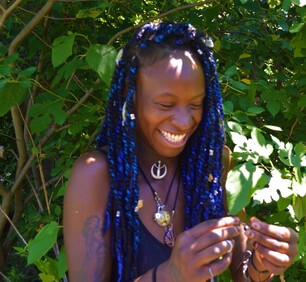 It all started because I was suffering from depression and anxiety. I also had eczema for as long as I can remember. When the pharmaceutical medication I was prescribed wasn’t working for me I learned about meditation. I immediately felt the benefits of focusing on my breath and quieting my mind, and then I came across yoga. It was like meditation exercise! From there I started getting as much information as I could on Eastern Philosophy. As I enhanced my spirituality, my connect with nature became more realized, and I became more familiar with something deep inside me. There, earth magic found me. I began making potions and incenses, learning how nature connects the spirit with the mind, emotions and body. At this time in my life, I was going through a particularly hard time with new and significant experiences, and my eczema went out of control, with large burning welts of the itchy rash. I knew that the depression I felt made my mind anxious and my body inflamed. I decided to turn to nature. I made creams, oils, teas and tinctures, trying to support my mind, emotions, and skin. When my eczema healed and didn’t come back for over year I felt affirmed in the belief that using natural ingredients was for me. So I started making all my everyday products with natural, organic ingredients — toothpaste, deodorant, culinary spices, soaps. And I never looked back. What challenges did you face when you first started your business? Some of the challenges I’ve faced when I first started my journey were navigating where I could get these natural ingredients in my area, and making sure that they were pure and ethically sourced. I also struggled with being a Black woman in this field, where I experienced that there was not a lot of cultural representation that I could find at the time. I also fought with feelings of inadequacy regarding how I was self-taught and didn’t get a certificate from some herbal education system which I couldn’t pay for. I doubted my abilities, my instincts, and felt out of place. I also faced challenges being consistent. Understanding that natural preventative medicine isn’t a quick fix and absolutely requires patience and consistency was tough, being so used to other store brought products. What would you say is the main focus of your work with Joyfully Natural? My main focus is on providing affordable high quality, organic herbal remedies. I also strive to help amplify the diverse work from the cultures in which herbalism thrives, and build connections, resources, and support in my community. I am also focused on bringing a holistic approach to multiple industries, using natural ingredients with environmental protection at the forefront. What advice would you give to budding herbalists? There is no one way to be an herbalist. Let your process be wild and free. Test things, embrace your inner child, be silly, be messy, be adventurous! Nature is our biggest teacher, and if you listen the plants truly give you the answers when you need them. Don’t fall into the trend that is becoming so apparent — don’t do this work because it's popular. In nurturing your relationship with nature, being true to yourself, embracing your flaws, struggles, and fears unapologetically, and finding your own special way to heal is essential. Remember that your healing can look different and that’s perfect. Always research how the herbs are sourced, and pay attention to the effects the harvest has on the environment, and support the environmental protection of the earth that provides this medicine for us. Check out United Plant Savers for the list of at-risk plants, and more information. Are there any non-herbal hobbies or interests that you love doing? I love dancing — mostly in the comfort of my home — as well as interior decorating, taking pictures, thrift shopping, cooking and hosting dinner parties, luncheons, etc. What’s one fun thing that most people don’t know about you? I love using my imagination like I’m an adventurer, and exploring places like abandoned buildings, off-the-beaten path in the woods, mountains, and rock formations at the beaches. What made you want to be a part of Herbstalk? I wanted to be a part of Herbstalk because I wanted to be a part of the opportunity to represent my neighborhood, Dorchester, and my culture in my city. Herbstalk looked like an amazing event with so many herbal resources that I was excited to connect with, but I didn’t see a lot of diversity. And I wanted to represent that diversity and hopefully be a part of expanding diversity and inclusion at these wonderful events. 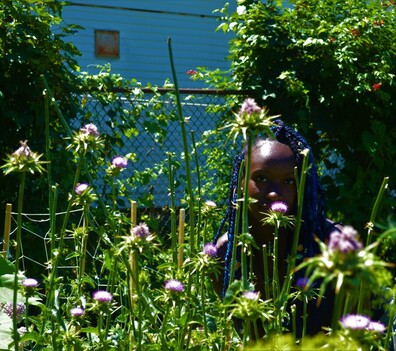 Keep in touch with Joye and shop her products via her website at: www.joyefullynatural.com or connect with her on Instagram @joyefullynatural. Don't forget you can also catch her class, “A Community Discussion on Natural Products” at the upcoming Virtual Herbstalk on Aug. 29th! We are very happy to bring back our popular "Meet the Herbalist" series where we profile some of the teachers, vendors and participants of Herbstalk. Today we are sharing an interview with Santalena Groves, herbalist and owner of Heart Grown Wild. We are honored to share some of her story with you. Come visit Santalena and see her beautiful skin care products at the Herbstalk Marketplace on June 1 & 2! Can you tell us a little bit about how your herbal work began? How did you first get interested in plants or herbalism? I think there is an intrinsic connection we all share to plants and nature. My first draw to plants was sparked by time spent in the natural world. Anytime I was able to escape the noise of my early existence I experienced a sense of ‘home’ that was like no other. I remember as a child I was obsessed with dandelion flowers and making things from leaves, petals and sticks. As I matured and entered college, I chose a small college that was surrounded by the beauty of the blue ridge mountains. No matter what was going on in my life, when I was hiking on a trail, feeling my feet on the ground and climbing over massive moss covered rocks, everything else drifted away and I felt like my most pure self. This continued to evolve as I sought out alternative plant based remedies to nourish my body and my door was blown wide open when I attended Herbstalk in 2013. I visited with many herbalists that day, and we took a plant walk that opened my eyes to a whole different version of my experience with nature. It was like someone turned on a light, and from there I was hooked. What challenges did you face when you first started? In the early days of formulation and making medicine I had difficulty figuring out how to assure the stability of oils and preparations. For myself and others it was sad to see oils and plant medicines turn rancid. As a resourceful person, I knew that I needed to throw my net wide to find answers. I found that scouring endless stacks of books, experimentation and personal experience proved the most helpful. Because sustainability and respect for these plants we work with is important to me, transparency with creating herbal oils and distillation techniques to assure quality is one of my values. I believe that sharing these methods at market booths and workshops over the years helps assure that our medicines don’t go to waste. If you could go back in time to meet yourself when you were just starting on the herbal path, what would you say? I think I would say to myself “Everyone’s connection with plants is personal and unique’. It makes my heart sad to hear others share shame or guilt because they don’t know all the answers, aren’t doing everything themselves, or the ‘right’ way. I remember feeling doubt and insecurity in the early days. I think this experience is common with any practice. We all have to start somewhere, and I think that it is important to allow the process to be messy and remember this is a practice -- so we will all continue to evolve and grow in our relationship with plants. What is the main focus of your work within the realm of herbalism? The main focus of my work is helping others access tunnels of light in the dark through beautiful self care rituals. The foundation of my work is inspired by my previous trauma informed practice in social work. I wove those experiences and practices with the magic of the plants to create beauty that goes beyond skin deep in each bottle. It makes my heart soar when that love and intention shines through and people feel these beauty rituals on a deeper level. My second passion with what I do is to grow so that I can be an integral part of helping shift a paradigm in a rapidly growing green beauty industry that is heavily saturated with the use of essential oils. While the shift towards more natural and plant based remedies is moving us to a cleaner place in our environment, similar to everything else in western society, we want it all and we want it fast. Our approach since the beginning is to help inspire that less is more. Knowing first hand how much the plants have to offer themselves to be distilled into a tiny amount of essential oil it has always begged the question for me, “For the love of plants, how are we going to sustain this and is it necessary”? This is also why I am challenging and teaching alternatives to current trends by using less essential oil if we do work with them. I love teaching people how very simple easy preparations can go a long way. I see my herbal business as a platform. I am putting in the hard work so that the message rings loud and clear outside of just our herbal community. At the market I started at, it was always inspiring to watch people's faces the first time they connected to the actual Helichrysum flowers I had in my jars versus the essential oil they connected with initially. Through this process I realized that there is a huge disconnect between the plants and this major ‘essential oil’ moment. I love teaching others how to make more sustainable beauty products, and also help others access these beautiful rituals by just using a few simple items. Can you share some of your go-to herbal books or favorite herbalists/teachers that you look to for inspiration? My go-to books are consistently Body into Balance by Maria Noel Groves, and The Herbal Medicine Maker’s Handbook. I have also found vintage books covering farming practices, sustainability and herbalism to be extremely appealing. I feel these “vintage’ books are teaching us how to circle back to simple and sustainable. I have had the privilege of learning about plants and herbalism from many people who I call my teachers. First and foremost the plants are my teachers. For people in my life who have been teachers, one would definitely be Kate Clearlight who runs Plantfolk Apothecary, she is a true pioneer of the green beauty movement in my opinion. She has been an inspiration to me for a very long time and I had a total ‘fan girl’ moment when I attended her workshops at the International Herb Symposium in 2017. I would also not be where I am today if it weren’t for my teachers at the Herbal Academy and Sage Maurer from the Gaia School of Healing in Vermont. My husband Tom Groves has taught me a great deal as well and it has been interesting to be on this journey together with plants from totally different perspectives. As the saying goes, “always a student”, the ‘students’ who attend classes I teach are also my teachers. We all bring a unique perspective to this practice, and we can learn from each other. Where do you see the future of herbalism going in the next few years? I think we are going to see herbalism continue to spiral out into the collective culture. We are watching Cannabis being decriminalized and people are shifting more and more to plants; stepping away from pharmaceuticals. With decriminalization and also the growth of herbalism it is shining a light on communities who have been marginalized for years - whether it be incarceration for practicing herbal medicine or being downright exploited. I think it is our responsibility to assure that everyone has equal access and to have the difficult conversations so that we can heal the harm that has been done. Therefore, I see herbalism being more than just physical medicine, I think that there is a social justice movement that will continue to grow within the practice that will be really potent medicine for all of us. Do you have a favorite plant or two at the moment? Oh goodness yes, Dandelion -- not only internally; they are also a sight for sore eyes. The flowers are everywhere right now and they are like little yellow puff pillows I just want to lay on all day in the sun. Working with dandelion is like drops of sunshine for my body and spirit. What advice would you give to budding herbalists? Find your roots. Exploring herbalism through our early experiences with plants and digging into the roots of our ancestors is powerful. What would be your top five deserted island herbs?
Roses to protect the heart and skin, big beautiful Burdock to nourish my body and wear as clothing, Mint as reminder that there is abundance everywhere and to cool it down, Hibiscus to hydrate and Jasmine to dream. Are there any non-herbal hobbies or interests that you love doing? I love to run and move my body, especially outside. I would describe myself as ‘simple bouje’. I am a total foodie, scouring vintage books and trinkets, and finding ways to bring luxe experiences into simple spaces-especially outdoors. Bring on cheese plates and candlelight surrounding a campfire, beauty rituals outside, herbal beverages pouring from crystal decanters, and vintage vinyl spinning on the record player. What made you want to be a part of Herbstalk? I was so inspired by the community that was built and how accessible “all things plants” was in one beautiful weekend. The first herbstalk we vended fostered relationships that now feel like home every time we come back. Steph, Henry and team have really built something special. << a light-hearted interview featuring Herbstalk teachers & vendors >> Arthur Haines has been teaching in the field of human health and human ecology for over 20 years. He runs the Delta Institute of Natural History and his popular classes focus primarily on foraging, herbal medicine, and ancestral lifeways. He will be offering two classes at Herbstalk this year: "Flora for the Fauna" and a plant walk, "Walking with the Standing People." What is the main focus of your work within the realm of herbalism? Wild plants found on our local landscapes. Teaching people to use what is in their place as opposed to importing non-native plants from around the world. Bringing in plants from around the world to use for healing is a step in the right direction but it is still imposing our will on the landscape and it is still a reliance on industry. I like to foster (to the extent possible) learning to use what grows in your bioregion. What challenges did you face when you first started? There were a lot of challenges discerning myth from lore from evidenced-based research and what the value of each was. Finding mentors who could share their expertise and experience was also difficult. Where do you see the future of herbalism going in the next few years? Highly regulated and likely prohibited in some realms with people becoming more and more afraid of allowing people to practice healing in their own families and communities. This is not a vision I wish for, but based on my experiences, I am fearful of things continuing to trend in this direction. Do you have a favorite plant or two at the moment? Whatever I am eating at the moment, so currently, wood nettle (Laportea canadensis). Or maybe black locust as two family members have bows made out of this tree. What advice would you give to budding herbalists? Practice the medicine on yourself. Are there any non-herbal hobbies or interests that you love doing? We practice herbalism to have medical sovereignty but we want sovereignty in all areas of our life … so we gather our own food, we make some of our own clothing, we craft our own hunting weapons, and so on. Any guilty pleasures you’d like to share? I guess California bay laurel nuts because they come from across the continent. But they are as close to chocolate as I have had from a wild plant in North America. Finally, what would be your top five deserted island herbs? (the only herbs you could have around while stuck on a deserted island) Self-heal (Prunella vulgaris), staghorn sumac (Rhus typhina), Japanese knotweed (Reynoutria japonica), northern white cedar (Thuja occidentalis), and hemlock reishi (Ganoderma tsugae). Thank you so much for sharing your some of your work with us, Arthur!
You can learn more about him at his website: www.arthurhaines.com Arthur will be teaching at Herbstalk on Saturday, June 2. View the full class schedule here! << a light-hearted interview featuring Herbstalk teachers & vendors >> Krystina Friedlander is a midwife and herbalist based in Exeter, New Hampshire. Through her practice she uses herbs to manage challenges that arise in pregnancy, birth and postpartum. Krystina serves families outside of hospitals using herbalism as an essential way to help keep people low-risk and to nourish a healthy pregnancy. Can you tell us a little bit about how your herbal work began? How did you first get interested in plants or herbalism? I've been interested in herbalism since childhood, when I read Jean M. Auel's Clan of the Cave Bear series, especially the first book. When I look back on my life, I can actually trace how profoundly those novels influenced me! I loved the connection between the young girl and her wise woman Neandertal foster mother, from whom she learned the herbal skills that enabled her survival. Though I can't say I spent time in nature beyond exploring my suburban landscape, I did find it enchanting. As an adult, I rediscovered herbalism after seeking a second opinion for a health challenge in 2011. My husband directed me to Madelon Hope, a Boston herbalist who he had studied with. I was astonished by the difference in the care that I received from her as opposed to the allopathic care I was so accustomed to; the level of attention, sensitivity and holism blew my mind. I began studying with her and Tommy Priester at the Boston School of Herbal Studies, and it radically redirected my life path. What challenges did you face when you first started? Quite simply, it felt overwhelming. I still feel overwhelmed by the sheer number of plants that surround me everyday, but I don't let it bother me as much. I go out walking and recognize quite a few, but there are many more I don't know. The more you know the more you know you don't know, and that's okay. I wanted to learn everything then, to tincture everything, to use everything. If you could go back in time to meet yourself when you were just starting on the herbal path, what would you say? Slow down, start small, and stay local. What is the main focus of your work within the realm of herbalism? My work is primarily with people who want to be pregnant, are pregnant, or are postpartum. I'm wrapping up my midwifery education this summer and will be certified and licensed midwife by this fall. I serve families outside of hospitals, so to me, herbalism is an essential part of my practice because it helps keep people low-risk by offering safe ways to stay within the realm of normal, as well as to nourish a healthy pregnancy. Can you share some of your go-to herbal books or favorite herbalists/teachers that you look to for inspiration? Absolute essentials for me are Aviva Romm's Botanical Medicine for Women's Health, Matthew Woods' The Earthwise Herbal books, and The Yoga of Herbs by Vasant Lad and David Frawley. I also love Rosemary Gladstar's Herbal Recipes for Vibrant Health, which is a fun and helpful book for anyone interested in getting started with herbalism. Where do you see the future of herbalism going in the next few years? In the area of maternal and perinatal health care, I'm witnessing a greater appreciation for herbal remedies (or at least tolerance of) within the medical establishment. Although studies are lacking due to the ethics of researching on pregnant populations, we do have great information about herbs like ginger and echinacea. I suspect that we'll be seeing more research on herbal alternative treatments to pregnancy and postpartum complaints. Do you have a favorite plant or two at the moment? I've felt really drawn to tulsi this year (perfect timing since it is the Herbstalk plant-of-the-year!), and drink it daily. I'm also obsessed with South Asian cuisine and so my life is full of warming spices--I'm flying through ginger these days. What advice would you give to budding herbalists? Start with your kitchen. Literally! Open up your spice cabinet, because spices are medicines we use most frequently and--considering how important our digestion is to our overall wellness--it's an important place to start. That represents the sort of practical day-to-day herbalism that anyone can use. Learn more about how you're already using herbs. Are there any non-herbal hobbies or interests that you love doing? I've become a fanatic knitter this year. Any guilty pleasures you’d like to share? Dystopian feminist fiction! The Book of the Unnamed Midwife, Red Clocks, The Power, Parable of the Sower and not particularly feminist but another great post-apocalyptic novel is Station Eleven. What’s one fun thing that most people don’t know about you? I haven't touched it in a while but I'm secretly an amazing embroidery artist. I have this incredible piece I did of David Bowie from the cover of Diamond Dogs that would pretty much blow your mind. What would be your top five deserted island herbs? I'd live a sad, bland, meaningless existence without turmeric, ginger, cumin, and coriander. Aside from the obvious culinary uses, those four represent a wealth of anti-inflammatory, immune, carminative, anti-microbial, and so many other uses. The fifth I'd include is black cumin, or nigella sativa. The Prophet Muhammad, upon him peace, called it "the cure for all things except death." Finally, what made you want to be a part of Herbstalk? Boston's herbal community has grown significantly since I began my studies and I'm just in awe of the organizers' vision, energy and hard work in bringing us all together. Herbalism is plants, it's about being in our bodies, it's about our connection to the world around and within us, it's about connection with people, it's about challenging dominant paradigms about health and wellness, it's about decolonizing medicine and society, it's about justice and access to healthcare, it's about universal wellness, it's about our strands of history, and it's about communities. Thank you so much for sharing your work with us, Krystina!
You can learn more about her and her practice, Baraka Birth, at her website: www.barakabirth.com Krystina will be teaching an intensive class -- Midwives' Medicine Basket: Herbs for Pregnancy, Birth & Postpartum -- on Sunday, June 3rd. View the full class schedule here! << a light-hearted interview featuring Herbstalk teachers & vendors >> Liat is the founder of Tamim Teas, the nation’s first herbal tea company exclusively dedicated to the benefits of medicinal mushrooms. She'll be one of our vendors at the Herbstalk Marketplace offering her array of wonderful mushroom-based tea blends. What steps did you take to start Tamim Teas? How did your work begin? I was just the average tea drinker - until I first heard about mushroom teas. My good friend contracted HIV and told me about how his herbalist recommended him to integrate medicinal mushrooms into his diet as a means to keep his immune system strong. It wasn’t long after that I, too, started making mushroom teas at home and learning more about all their amazing health benefits and long-time use in traditional medicine. I found that the taste of some of these medicinal mushrooms was not as satisfying as my other herbal teas, though. Simply put, drinking these teas was more about reaping health benefits than actual enjoyment. That’s when I had an epiphany, my spiritual ‘aha’ moment! I realized that if I carefully paired each medicinal mushroom with herbs and spices, I could not only add to the health properties but also make delicious herbal tea blends that I’d actually looked forward to drinking at any point of the day. I began by first making these herbal tea blends for friends and family, and slowly it become something that both health enthusiasts and tea lovers in my community were asking me for. That’s when I formed Tamim Teas and exclusively dedicated each one of my herbal tea blends to the benefits of organic mushrooms. Did you come across any stumbling blocks or challenges along the way? I believe that sourcing medicinal mushrooms from organic local farms ensures the best flavor and functionality. That being said, traveling to farms and getting to know my farmer is no easy feat. It takes time! Of course, it would be a lot easier to simply order mushroom powders or extracts online. But it’s disturbing to discover that most of what is being offered on the internet is from unknown sources, and in the same way that I wouldn't want to consume other foods from questionable sources, I would never want a mushroom tea without knowing that the actual mushroom came from a trustworthy New England family farmer. The second challenge is always a fun one – talking with people who have never heard of mushroom tea. Many people jokingly (or not jokingly) ask if it’s a psychedelic tea, not knowing about other types of mushroom tea that have long traditions of therapeutic use in eastern cultures. Others assume that all mushrooms have the same savory taste as the ones they eat and don’t realize that some - like chaga and reishi - are actually inedible, taste completely different than culinary mushrooms, and have been exclusively brewed as a tea for generations. It brings me no greater joy than to have people first learn about medicinal mushrooms through their sips of Tamim. Do you have any non-herbal hobbies or pursuits? I love dancing. I can’t go too long without closing my eyes and letting music transport me to another dimension. If going out to dance is not an option, I simply plug in my earphones and convert my living room into a silent disco. I'm a firm believer that 'to boogie is a life blessing'. What has been your main focus as of recent? Handcrafting a new blend! I love learning and working with new herbs, and when I found out that holy basil/tulsi was the herb of the year at Herbstalk, I knew I wanted to dedicate a blend to it! I have to admit, it took time and patience to create this newest blend. In fact, I concocted different tulsi-based blends almost daily for nearly two months, even when traveling abroad to visit family on Curacao. I finally nailed the perfectly balanced blend with nourishing tulsi, refreshing ginger, and both revitalizing lion's mane and maitake mushrooms. I am so excited to share this blend and release it to the public for the first time at this year's Herbstalk! Thank you, Liat!
You can learn more about Tamim Teas here and view the full line-up of Marketplace vendors here. The Market is open on Saturday, June 2nd from 10am to 6pm & Sunday, June 3rd from 10am to 4pm << a light-hearted interview featuring Herbstalk teachers & vendors >> Clair and Amanda of Willow Provisions are herbalists and friends who believe that the most powerful and healing magic is made of mundane things like shared meals. They are passionate about food, community and creating unique dining experiences. Can you tell us a little bit about how your herbal work began? How did you first get interested in plants or herbalism? Amanda: I came to herbalism shortly after I became a witch. I wanted to learn more deeply about the earth and my own health and body as a critical part of my spiritual life and practice, so I sought out a program to help me do that. I was also struggling with my health and feeling resistant to taking the myriad medications I had been prescribed, so I sought a consultation for myself as well. Developing relationships with plants, learning to make my own medicine, and making other lifestyle changes (like sleeping more, moving more, and eating differently) changed my health in profound ways, and I have continued deeper in my spiritual connection with the earth and all its creatures. It is a gift to be able to share this magic with others as I continue to learn and grow. Clair: I always remember loving the beach and the forest growing up, but it wasn’t until I was much older that I began to develop a relationship to the earth. Through struggles with my own health, I started to turn to plants, when it seemed that traditional medicine couldn’t help me. As I started to see positive changes in my body, I slowly began to realize how connected we are to the plants and other beings. The teachings I’ve received from the plants and from other herbalists have flipped my life upside down in the best way possible, and I love getting to share these teachings with others. We're just a couple of friends passionate about food, community, and fun! Cooking together and sharing meals has been a beloved part of our friendship as well as our healing and learning as individuals and as community herbalists. We experience so much beauty and connection together through cooking that we thought -- why not share?! Willow Provisions is born of our joint conviction that the most powerful and healing magic is made of mundane things like shared meals. We want others to experience love and connection through the caring and sustainable preparation of healing plants and animals. We want to bring memories of learning and connection right into your home or community, where you feel most at ease, and share with you the healing magic of plants. What is the main focus of your work within the realm of herbalism? Our business offers locally focused herbal immersion experiences for individuals and groups through supper clubs and a wide variety of workshops. We say immersion experience because we feel strongly that people learn best and most fully by engaging all of their senses, and we strive to practice and cultivate whole body self care. So at each event whether it's a supper or a workshop, we offer people a multiplicity of ways to engage with the plant and/or skill that we're sharing. Everything we do is centered around herbs - we're both herbalists, trained in the vitalist tradition, which emphasizes the importance of herbs in facilitating healthy movement, sleep, nutrition, and stress management. Everything we do is focused locally - we strive to connect people with the allies that grow right outside their doors, helping them understand that they can find exceptional healing from within their own communities. We connect people to local farms and vendors, hopefully ushering them a little closer to a sustainable way of living. In addition to being trained herbalists, we have an array of critical skill sets between us that give our business a unique flare. Clair is also a private chef and yoga teacher. Her experience in the restaurant business brings a high level of professionalism and efficiency to our supper clubs, and her proficiency with leading meditation and movement allows us to provide people with opportunities for deep relaxation and reflection. Amanda is a seminary trained witch and tarot reader, exceptional home cook, and sorceress of southern hospitality. Her home crafting skills and knack for creating ritual space bring a welcoming and magical atmosphere unique to the Willow Provisions experience. Her distinct way of finding enchantment in the everyday moments reminds our guests to pause, notice, and appreciate the gifts that exist all around us. What are some of your favorite go-to herbal books or herbalists/teachers that you look to for inspiration? We both studied herbalism at Commonwealth Center for Holistic Herbalism with katja and ryn. They are extraordinary teachers and wonderful human beings who we feel privileged to know. They are very rigorous in their study of herbalism, and accessible in their teaching. As it happens, they have a new book out we’d definitely recommend. It’s a beautiful overview of many of our favorite plants, and explains how to apply them to different situations and bodies. It’s wonderful for anyone just starting out as an herbalist, and as a reference for experienced practitioners. We also love Tammi Sweet! She is an exceptional herbalist and massage therapist who teaches physiology and herbalism with contagious charisma. She offers online classes, and you should definitely check them out! Another inspiring herbalist is our friend Kinsey Rosene, who owns CroseNest in Lowell. She has cultivated a beautiful space and community of learning there. Her store is a magical place where you can pick up all the necessities, as well as learn medicine making and other skills at one of her lovely workshops. It is definitely worth a trip! Where do you see the future of herbalism going in the next few years? We find ourselves in the crossover of two rapidly developing industries -- food, and wellness. We are starting to see huge shifts in the food industry as more and more chefs and restaurants start to focus on using locally grown, small farm ingredients. We love this change, and hope to see more of it in the future! We have really appreciated getting to know our local farmers, and find that being able to chat with them about the rain, the soil, and sometimes even being able to pick our own food brings a connection to our food supply that makes us appreciate the heart and soul that goes into providing nourishment to our bodies. In the wellness industry, we are starting to see a shift from product dependency to skill set development. Our aim with our workshops (and our suppers) is to teach people how to work with herbs, food, movement, and everyday, accessible resources to support their health in a variety of safe and reliable ways. While we love creating formulas and remedies ourselves, we want people to feel empowered to make their own choices about what they need, feel confident in their knowledge about how to work with plants, and empowered to take ownership over their own health and healing. What advice would you give to budding herbalists? Vary your education. Herbalism in this country is a vast and varied landscape - explore it! Spend time in silence or in conversation with the plants. Be willing to take risks and create things that are unexpected. Don’t be afraid to make mistakes. What’s one fun thing that most people don’t know about you? We have a YouTube Channel! It’s new - a diamond in the rough. It’s called Chic & Chat - the show where a couple of chics sip a cup of chic and chat about magic. Chic is herbalist slang for chicory, fyi. Tell your friends; pass it along. Each Sunday we share a different chic recipe and chat about the magic of something we love. Check it out and try some of our recipes! What made you want to be a part of Herbstalk? We love being able to share our passions with our local community, and we love that Herbstalk is such a fun and accessible event for everyone. What would be your top five deserted island herbs? (the only herbs you could have around while stuck on a deserted island) Damiana! First of all, damiana grows in desert like climates, so we might actually be able to cultivate a little garden of it! But also, damiana is an amazing problem solving ally that helps you channel anxious energy into creative solutions, which we’d definitely need to survive a Castaway situation. Nettle! A nutritive and mineral rich plant, to help provide our bodies with necessary nutrients while we learn how to forage a strange island for food. Nettle is also very grounding and centering and would help remind us that being stranded on a deserted island might actually be kind of amazing. Catnip! A cooling and soothing plant inside and out. Catnip could help sooth a sunburn or settle us down to sleep while we’re still getting used to sleeping on sand or palm fronds. It’s also a great digestive aid, which we’d likely need as we get accustomed to all that strange food we forage for ourselves. Catnip is also the BEST hangover cure, which would be handy after all of those nights we spend guzzling our homemade mango wine. Ghostpipe! An amazing ally that helps ease the anxiety and overwhelm that come along with huge transitions, like going from modern day living to being stranded on a deserted island! Linden! Well, we’re on a desert island, so we need a good cooling and moistening plant, and linden is one of our favorites! Also, being stranded on an island might be pretty stressful, and linden is so soothing (because it’s moistening to heart tissues) for anxiety and distress. Thank you, Clair and Amanda!
You can learn more about Claire here, and Amanda here. Their joint business is Willow Provisions. Clair and Amanda will be offering their class "Tulsi for the Resistance" at Herbstalk on Saturday, June 2. Check out the full class schedule here! << a light-hearted interview featuring Herbstalk teachers & vendors >> We are happy to continue our interview series with Lana, a college professor, drug information pharmacist and herbalist. She teaches pharmacy students how to take care of their health with the right herbs, food and self-care techniques and also hosts a wonderful weekly podcast called "Wellness Insider Network." Can you tell us a little bit about how your herbal work began? How did you first get interested in herbalism? I began becoming interested in herbal medicine during pharmacy school. Even though I was learning about conventional ways to treat patients with complex illnesses, I didn’t know how to take care of myself. Soon enough I began exploring herbal and vitamin shops, and as a pharmacy student began digging into databases and books. What challenges did you face when you first started? One of my biggest initial challenges was learning from books. It gave me a lot of comfort to see that people were writing about natural therapies, but evaluating the recommendations were tough. The other difficult element was fear of experimenting with plants. I got over that fear by taking classes with herbalists and by trusting their guidance. If you could go back in time to meet yourself when you were just starting on the herbal path, what would you say? Find that tribe of people and teachers that you trust and start experimenting with confidence. What is the main focus of your work within the realm of herbalism? In addition to being an herbalist, I am a college professor and drug information pharmacist. Working with college students is where I feel I can offer the most impact. I hope that my journey and new podcast, Wellness Insider Network, will help my students to take their first steps in exploring the amazing world of herbal medicine in their lives. Can you share some of your go-to herbal books or favorite herbalists/teachers that you look to for inspiration? My typical go-to books and resources are written by Rosemary Gladstar and David Winston, but there are new younger teachers that I very much enjoy learning from -- Maria Noel Groves and Rosalee de la Forêt are some of them. Do you have a favorite plant or two at the moment? Tulsi! Somehow I always come back to it. And what would be your top five deserted island herbs? (the only herbs you could have around while stuck on a deserted island) I would choose: Calendula, Chamomile, Yarrow, Thyme and Ginger. What advice would you give to budding herbalists? Herbal medicine is a lot like cooking, trying new ingredients and flavors make you more comfortable and confident in the long-term. What’s one fun thing that most people don’t know about you? I got interested in Astrology a couple of years back (I took a course on the connection between planets and plants), and love exploring natal charts of friends and family. What made you want to be a part of Herbstalk? This is a vibrant community in my native town. I respect and admire the creator, Steph Zabel, and the mission of the organization to get more people to become educated and comfortable using plants. Where do you see the future of herbalism going in the next few years? I hope that more people will continue discovering this important and empowering way of taking care of themselves and their loved ones. 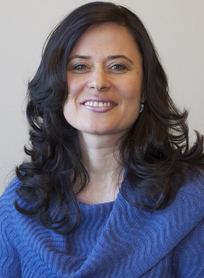 Thank you, Lana! You can learn more about Lana's work and podcast at her website and can join her intensive class, "Herbal Safety & Drug Interactions" on Saturday, June 2. Check out the full class schedule here! << a light-hearted interview featuring this year's Herbstalk teachers & vendors >> Can you tell us a little bit about how your herbal work began? How did you first get interested in plants or herbalism? I think I’ve always had an affinity for herbs and the natural world. As a toddler, my mom said I used to just wander our property, observing and sitting with the plants. She had to watch me closely, because I tasted everything if I got the chance! While my senses were always attenuated to the natural world I didn’t begin to study medicinal herbs more closely until I was a teenager. I became interested in herbalism because I had health challenges myself that made me start looking at nutrition and natural means of healing. Herbalism was also what brought me to Naturopathic medical school, so it’s been a guiding light for me in many ways. What is the main focus of your work within the realm of herbalism? In my private practice, I work primarily with women that have chronic digestive issues and/or autoimmune disease. But my focus within that population is generally using the herbs for longterm, nourishing, restorative and emotional healing work. I’m a huge proponent of teas, and that’s how I prescribe a lot of my herbal preparations. I also am focusing more these days on bringing people outside and connecting with the plants directly as a healing modality. What advice would you give to budding herbalists just starting out? Use all of your senses to get to know the plants and the spaces they live in. Practice building the acuity of your senses. Learn about the mycorrhizal connections that unite the plants in a space. Deeply connect with your bioregion if you are able, and plant native species often. Can you share some of your go-to herbal books or favorite herbalists/teachers that you look to for inspiration? So very many, but if I had to choose, the work of Robin Wall Kimmerer has been my largest inspiration in the last few years, particularly her two books, Braiding Sweetgrass and Gathering Moss. I also consider natural plant relationships a lot in my practice, and am very interested in art and design. Relating to that, The Garden Awakening by Mary Reynolds has been hugely influential for me in the last couple years. I’ve always resonated with the work of Susun Weed and was introduced to medicine making techniques by her and the work of Rosemary Gladstar. I love the reclamation of an astrological and alchemical perspective of herbalism presented by Sajah and Whitney Popham at the School of Evolutionary Herbalism. Finally, I get into my kitchen-witch mode by following the Gather Victoria blog, which is put forward by Jennifer Aikman and Danielle Prohom Olson. Where do you see the future of herbalism going in the next few years? I think there will be an even bigger push toward educating individuals on how to make their own medicine and what they can use within their own bioregion. I also think there is a great urge rising for individuals to explore their own, individual ancestral relationship to herbalism. As people connect with their own ancestors, it will be natural for them to further explore those methods of healing. Do you have a favorite plant or two at the moment? I’m really connecting to the spring-time pioneers at this time of the year in Maine. I’m enjoying the flavors of the season; the bitterness of dandelion, the light sweetness of violets, the combination of those two flavors in the hosta shoots. Their awakening is waking me up from Wintertime. If you had to choose, what would be your top five deserted island herbs? (the only herbs you could have while stuck on a deserted island) This is such an epic question! Here they are: Nettles, White Pine, Plantain, Hawthorn, Lemon balm. What’s one fun thing that most people don’t know about you? When I was a medical student I worked frequently as a medical actor, so I would be a standardized “patient” for the upper class-men and interns that were completing exams or needed additional practice with diagnostic techniques. It was an opportunity to educate future doctors on how to refine their sensitivity as practitioners, and it taught me a lot about the experience of the patient that I may not have gotten otherwise. It also gave me a lot of writing material for short stories I’ve worked on since. What made you want to be a part of Herbstalk? I really loved the accessibility of the event and believed in the mission of finding unique ways to look at and work with plants. These kinds of community events that are open to all will become even more important in the future, I think, and I wanted to be part of that. Thank you, Dr. Aline!
You can view more about her work and practice at her website and can join her plant walk on Evergreen Herbalism taking place on Sunday, June 3rd. Check out the full class schedule here! << a light-hearted interview featuring this year's Herbstalk teachers & vendors >> Can you tell us a little bit about how your herbal work began? How did you first get interested in plants or herbalism? My interest in health and wellness began with spirituality. Since my early 20s, I’ve been fascinated with spirituality and in my own spiritual growth. After working in corporate America for several years, I stumbled upon Ayurveda when a friend of mine asked me to take her Ayurveda program. I learned that Ayurveda talks about balancing the health of body, mind and soul and utilizes food as the main way to achieve that balance. I hadn’t previously thought of the body as being that vehicle to attain spiritual freedom. I started looking at my kitchen cabinet as not just a storehouse of food but also as a pharmacy. I started experimenting with these spices – every time my mom or other relatives had any health issues, I would look up solutions, talk to my mentors, and suggest kitchen remedies. They worked – not just for physical ailments but also to help calm the mind. What challenges did you face when you first started? At the beginning I had a lot to learn. I was an engineer in my previous career and I was switching to a completely different area in health and Ayurveda. The science was vast and I spent a lot of time trying to understand basic info – such as how does the human body work, learn Ayurvedic concepts and just try to get a feel for such a vast topic. If you could go back in time to meet yourself when you were just starting on the herbal path, what would you say? I would tell myself that it’s ok to not know, and I would tell myself that I should see more clients and let the learning happen in my practice. Because you can’t know everything -- your learning and experience develop in your practice. What is the main focus of your work within the realm of herbalism? Within herbalism, I focus a lot on spices and Indian herbs. I recommend different types of decoctions, teas, juices made from these spices. I also focus on how to use these spices and herbs in everyday food. I use these herbs not just in internal consumption but also for external application. Where do you see the future of herbalism going in the next few years? There is a lot of potential for herbalism. People are moving away from pharmaceuticals and towards natural remedies and solutions. In addition, if there is greater collaboration between herbalists and people in conventional medical science – it will not just bring different fields together but also greatly enhance people’s lives. So, I’m hopeful and excited. Do you have a favorite plant or two at the moment? I love ginger root – it’s an amazing herb/spice. I use it in my own cooking. I also use it as a paste, and I squeeze its juice and use it as a tea. It is very versatile and can help treat different conditions including inflammation in joints, indigestion and even to perk up someone’s energy. What’s one fun thing that most people don’t know about you? I like to dance. When the music starts – and sometimes I just turn on the music myself – I like to move (I probably wouldn’t qualify for any Broadway musical) but I enjoy getting in rhythm with the music. Thank you, Sriram!
You can view more about Sriram's work at his website, and can learn more about Ayurvedic herbs and spices at his Herbstalk class taking place on Sunday, June 3rd. Check out the full class schedule here! << a light-hearted interview featuring Herbstalk teachers & vendors >> Can you tell us a little bit about how your herbal work began? How did you first get interested in plants or herbalism? My interest in health and wellness began with spirituality. Since my early 20s, I’ve been fascinated with spirituality and in my own spiritual growth. After working in corporate America for several years, I stumbled upon Ayurveda when a friend of mine asked me to take her Ayurveda program. I learned that Ayurveda talks about balancing the health of body, mind and soul and utilizes food as the main way to achieve that balance. I hadn’t previously thought of the body as being that vehicle to attain spiritual freedom. I started looking at my kitchen cabinet as not just a storehouse of food but also as a pharmacy. I started experimenting with these spices – every time my mom or other relatives had any health issues, I would look up solutions, talk to my mentors, and suggest kitchen remedies. They worked – not just for physical ailments but also to help calm the mind. What challenges did you face when you first started your journey into Ayurveda? At the beginning I had a lot to learn. I was an engineer in my previous career and I was switching to a completely different area in health and Ayurveda. The science was vast and I spent a lot of time trying to understand basic info – such as how does the human body work, learn Ayurvedic concepts and just try to get a feel for all this. If you could go back in time to meet yourself when you were just starting on the herbal path, what would you say? I would tell myself that it’s ok to not know, and I would tell myself that I should see more clients and let the learning happen in my practice. Because you can’t know everything -- your learning and experience develop in your practice. What is the main focus of your current work with herbs? Within herbalism, I focus a lot on spices and Indian herbs. I recommend different types of decoctions, teas, and juices made from these spices. I also focus on how to use these spices and herbs in your food. I use these herbs not just in internal consumption but also for external application, too. Where do you see the future of herbalism going in the next few years? There is a lot of potential for herbalism. People are moving away from pharmaceuticals and towards natural remedies and solutions. In addition, if there is greater collaboration between herbalists and people in conventional medical science – it will not just bring different fields together but also greatly enhance people’s lives. So, I’m hopeful and excited. Do you have a favorite plant or two at the moment? I love ginger root – it’s an amazing herb/spice. I use it in my own cooking. I also use it as a paste -- I squeeze its juice and use it as a tea. It is very versatile and can help treat different conditions including inflammation in joints, indigestion and even to perk up someone’s energy. What’s one fun thing that most people don’t know about you? I like to dance! When the music starts – and sometimes I just turn on the music myself – I like to move (I probably wouldn’t qualify for any Broadway musical) but I enjoy getting in rhythm with the music. Thank you for talking to us about your practice, Sriram! You can learn more his work at his website. And, you can learn more about Ayurvedic herbs in his Herbstalk class "Herbs & Foods for Ayurvedic Body Types" on Sunday, June 3rd. See the full class schedule here!
|
Archives
November 2023
Categories
All
|
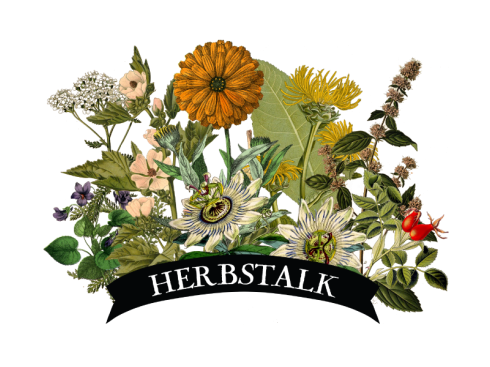
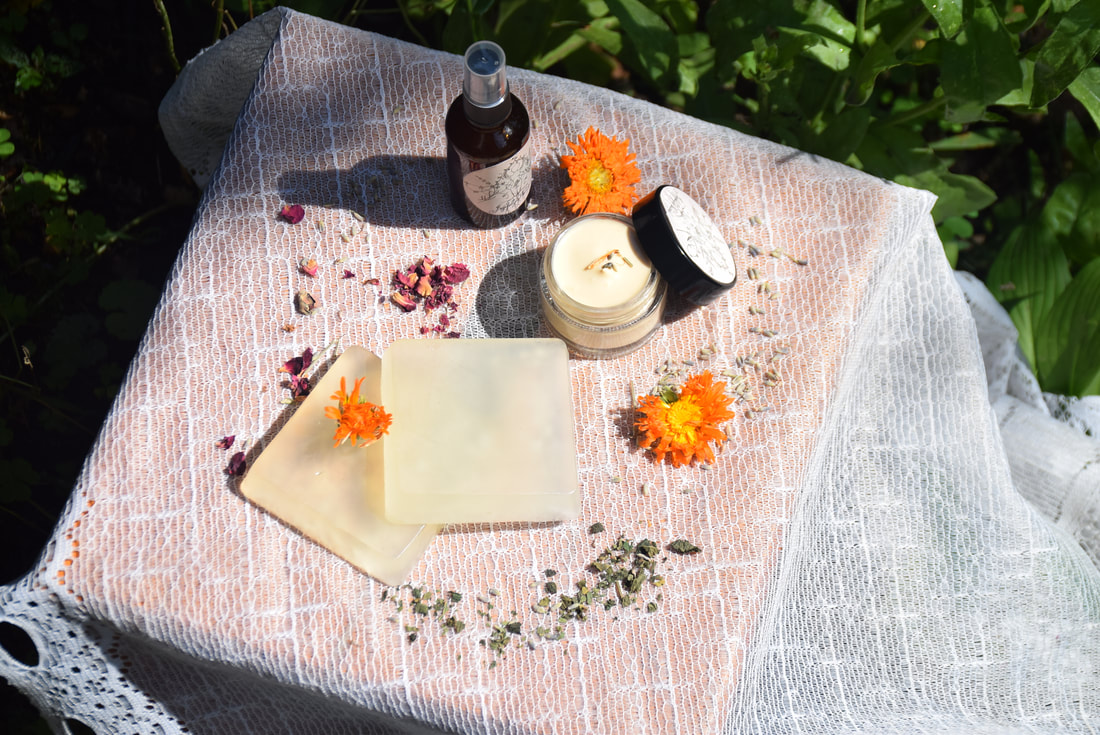
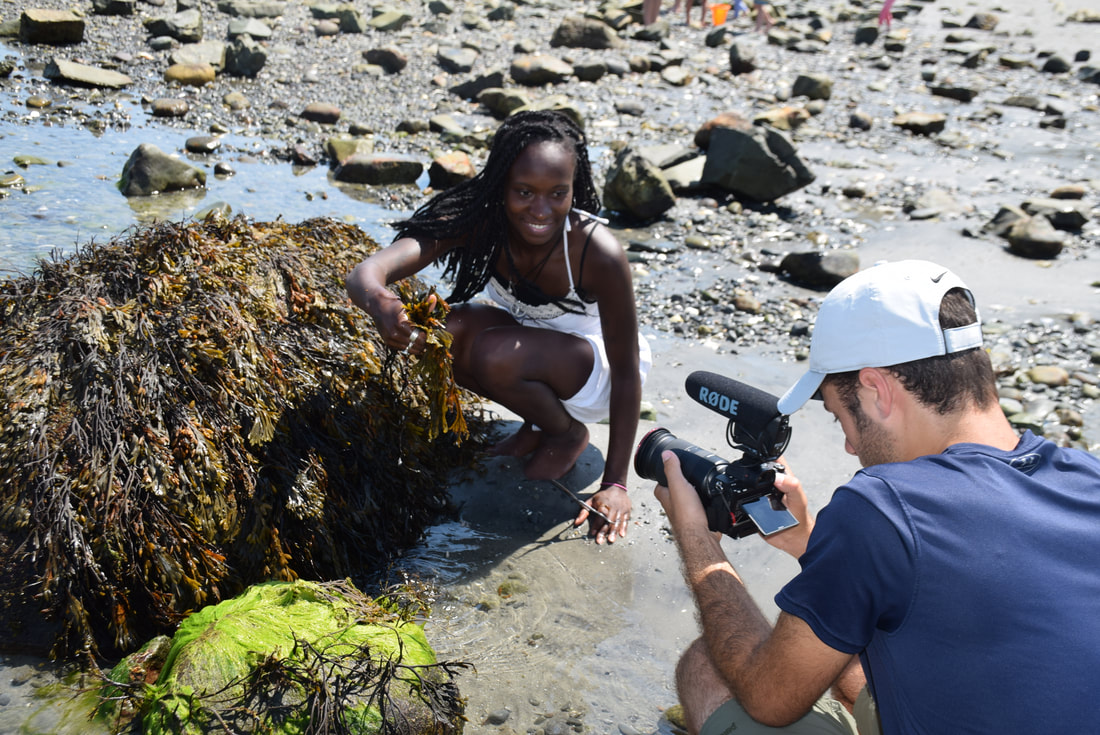
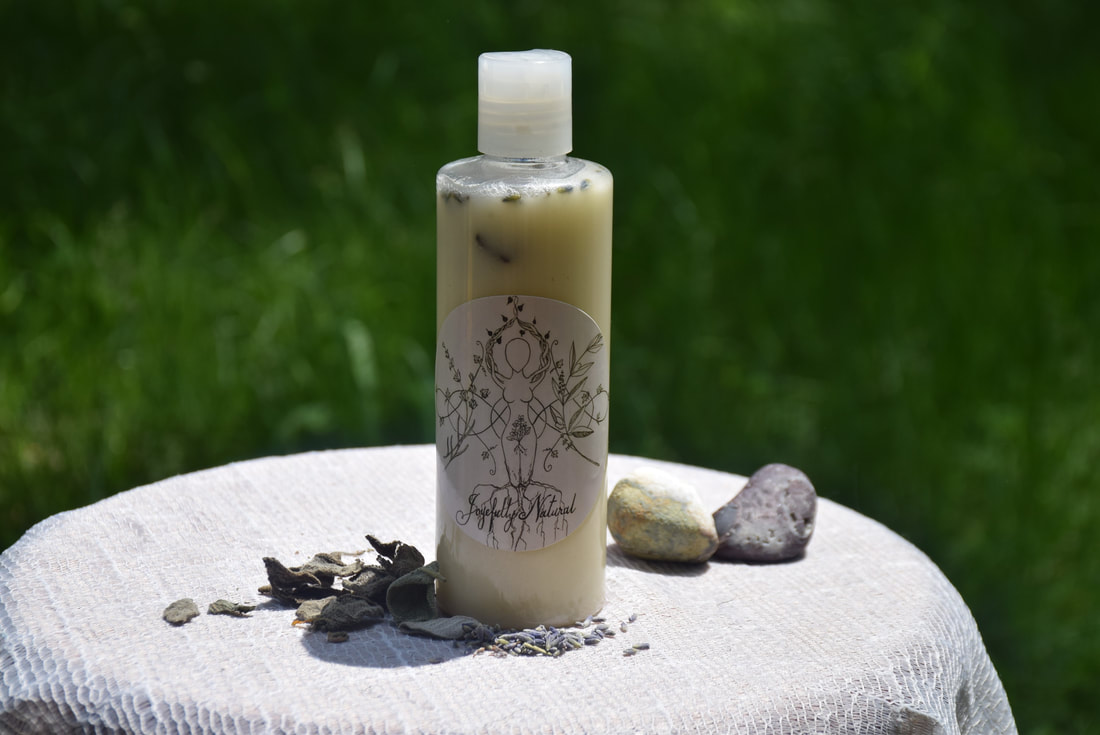
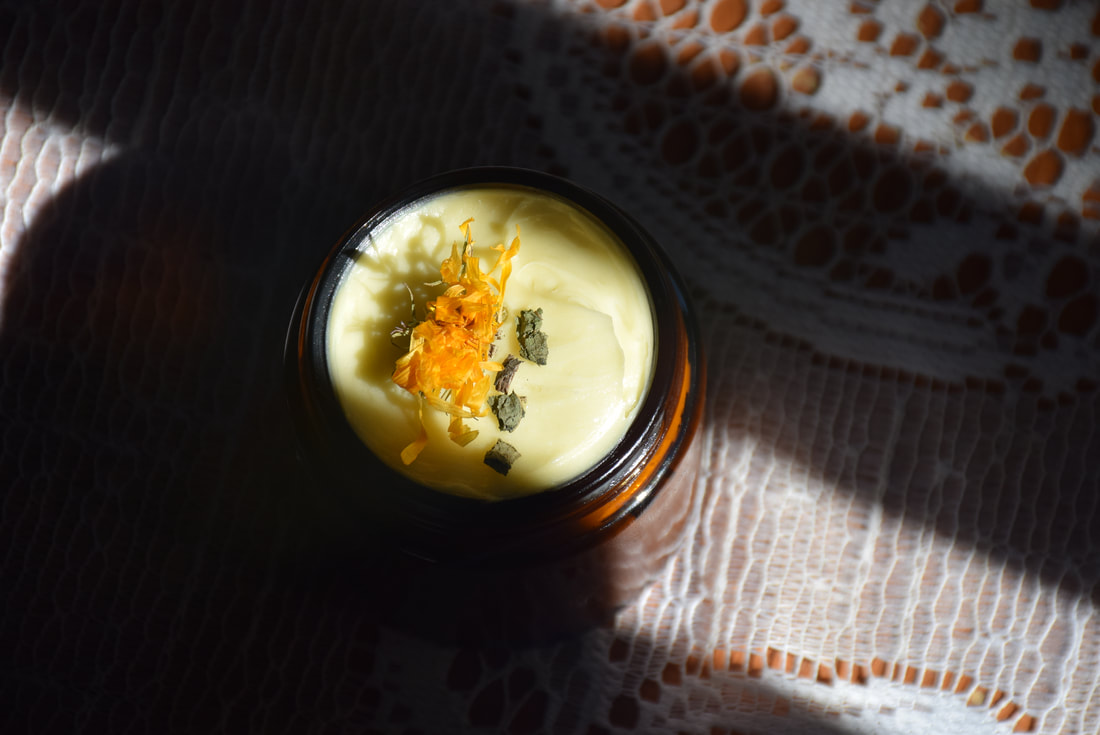
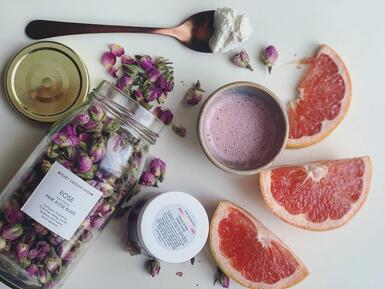

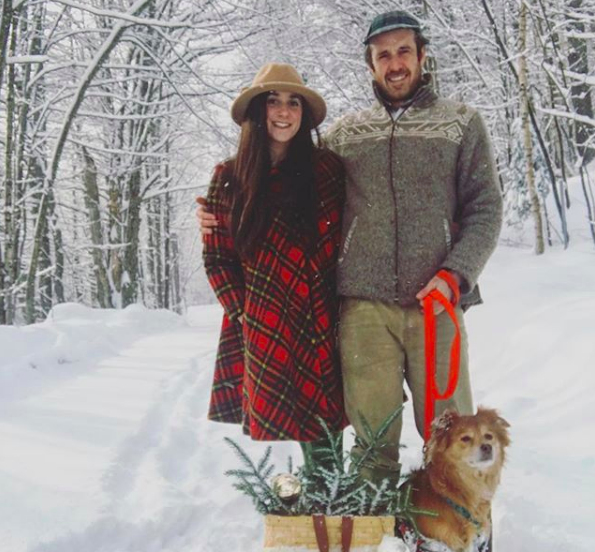
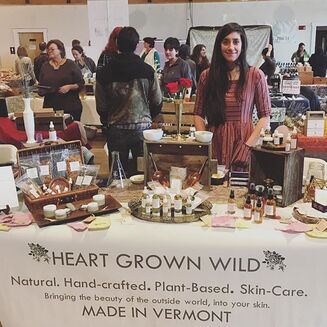
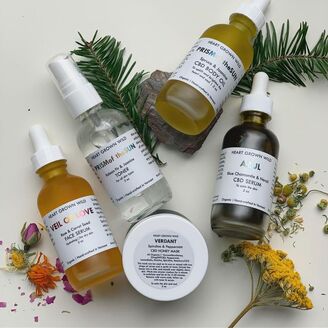
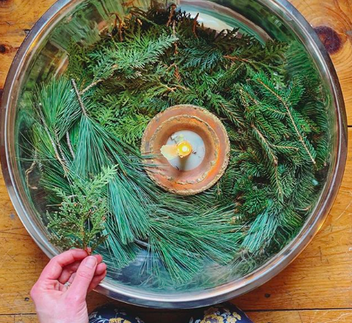
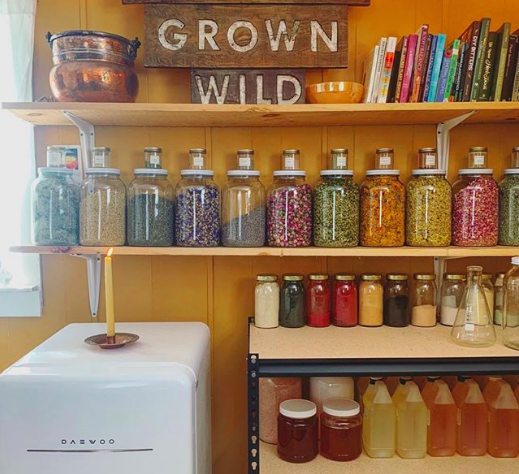
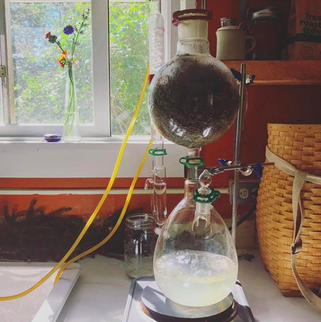
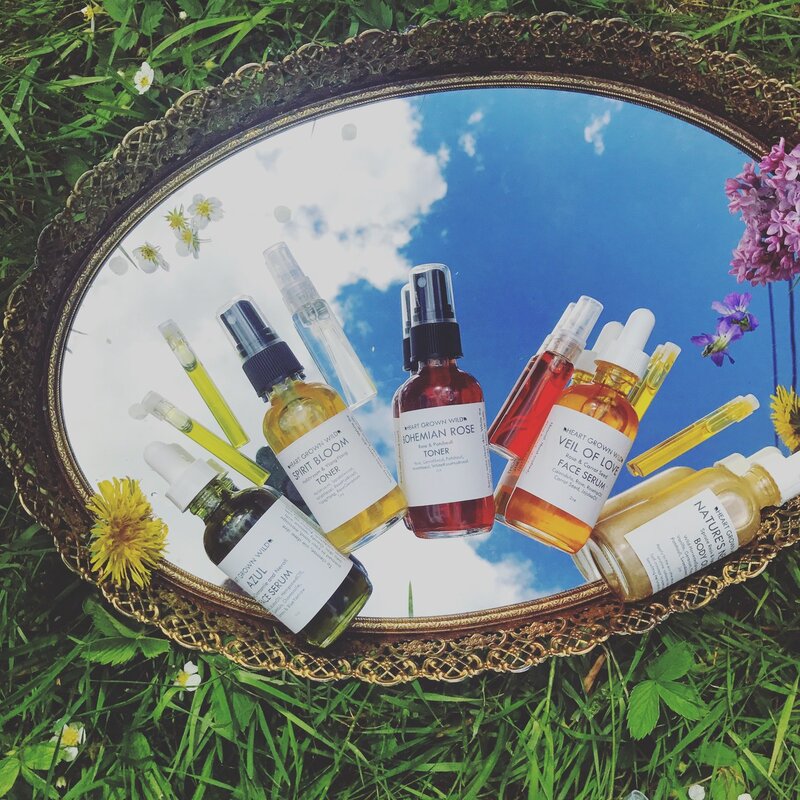
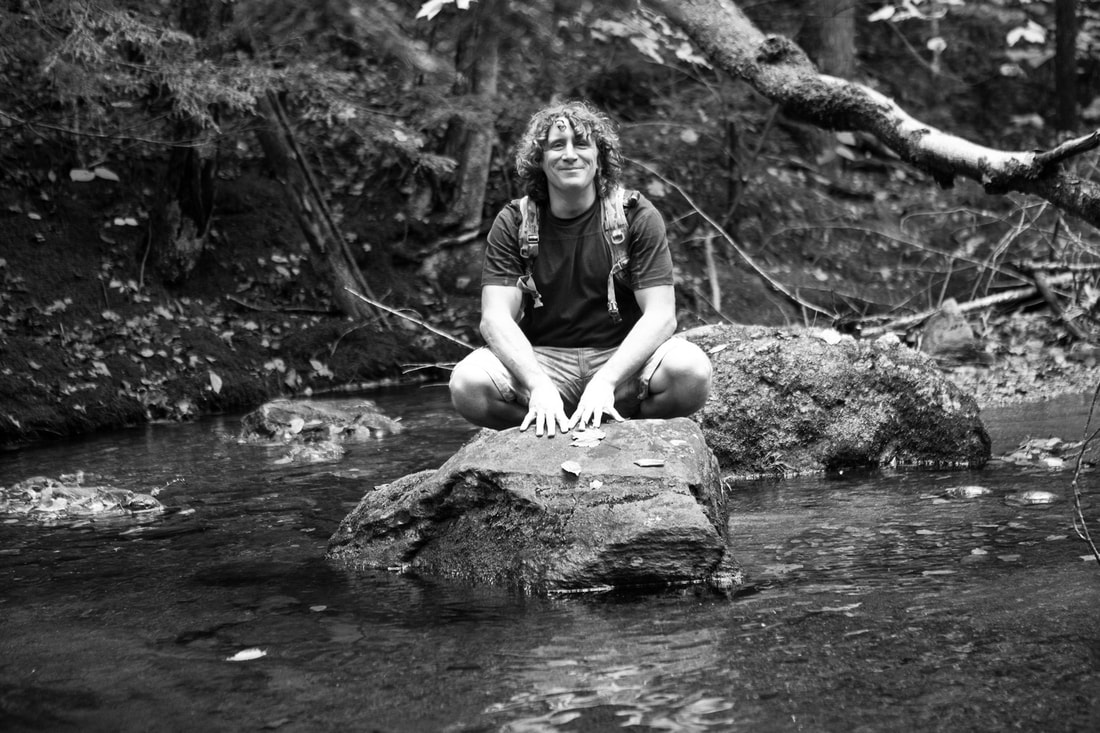
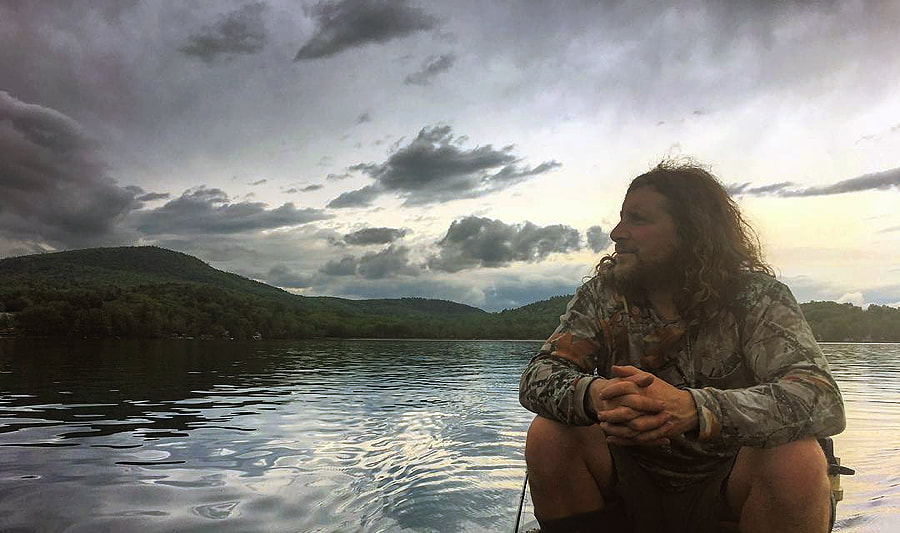

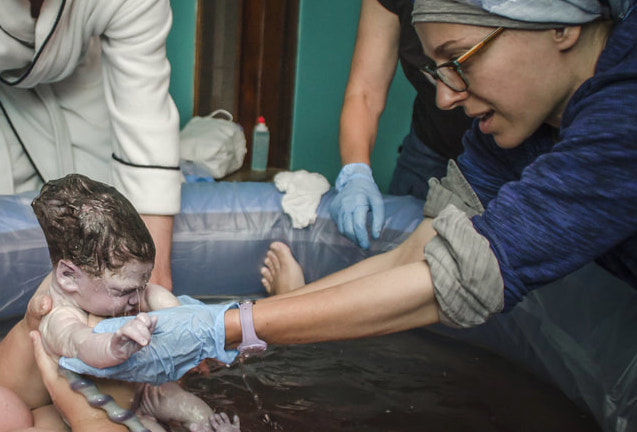
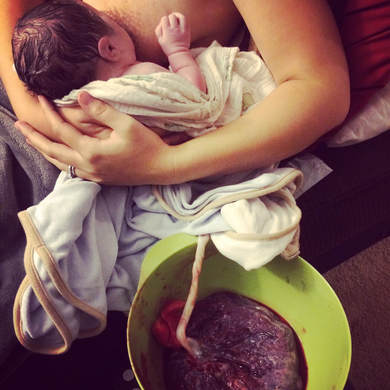
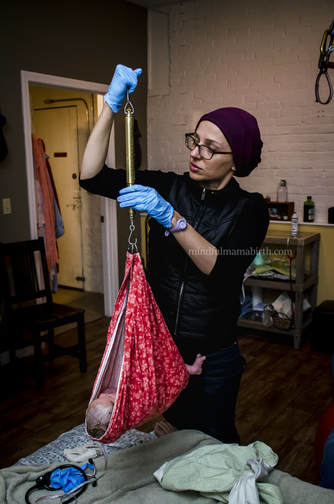
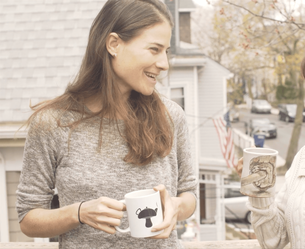
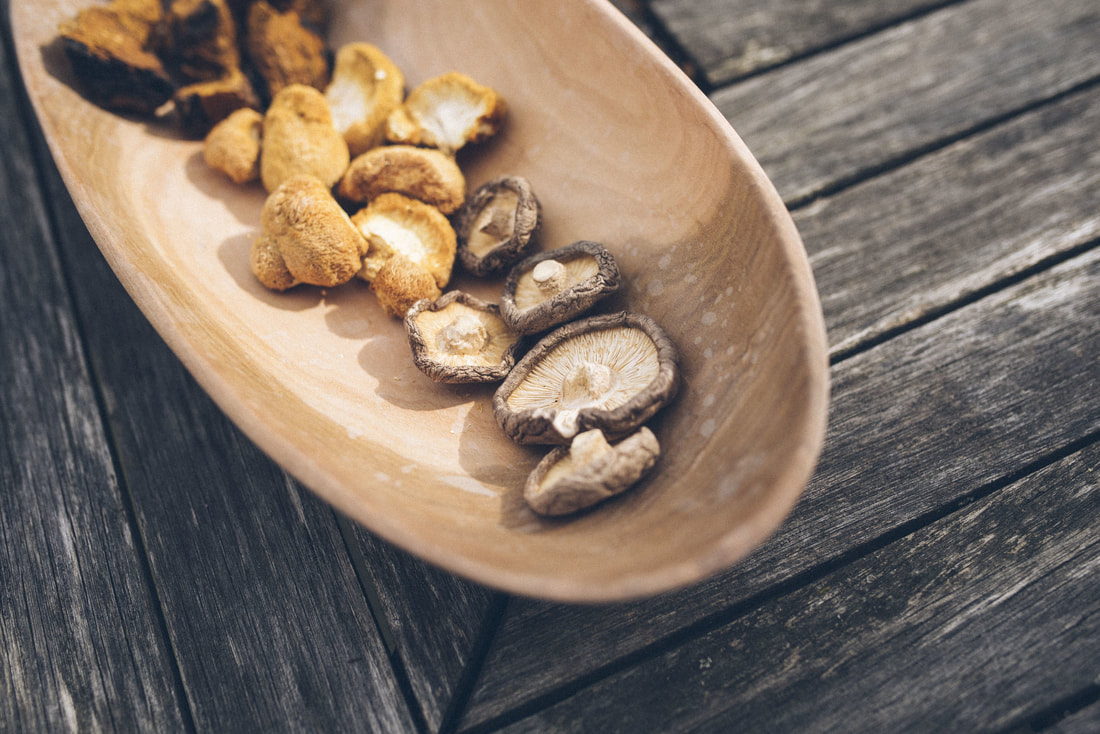
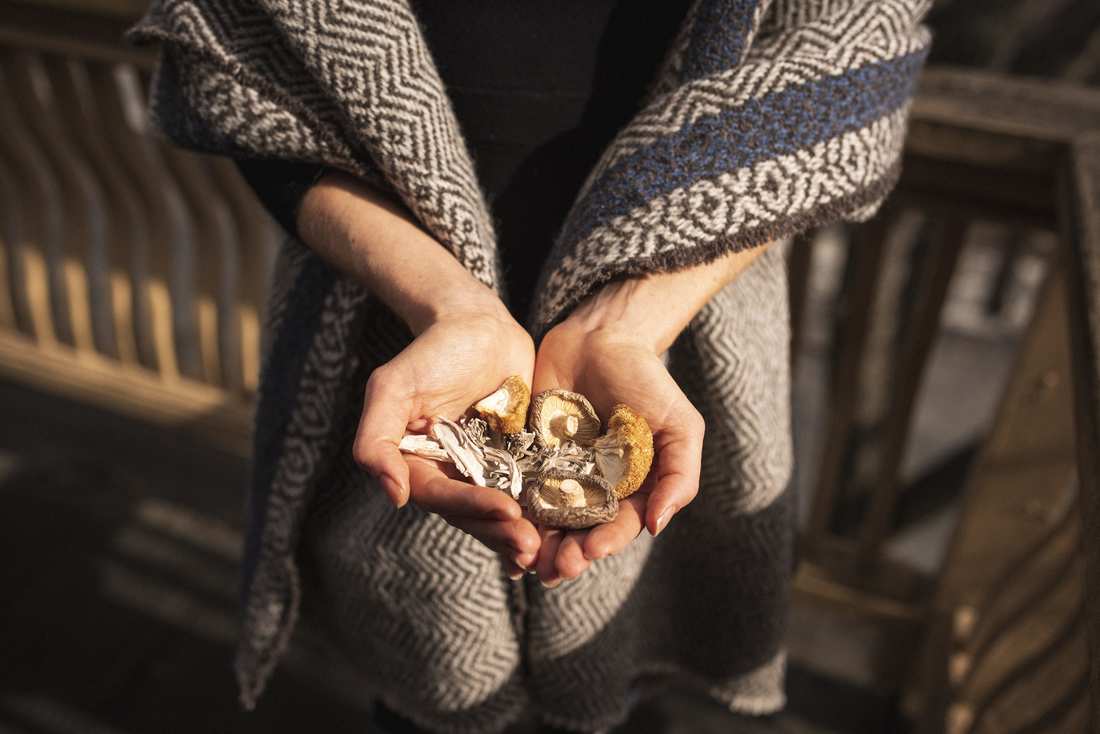
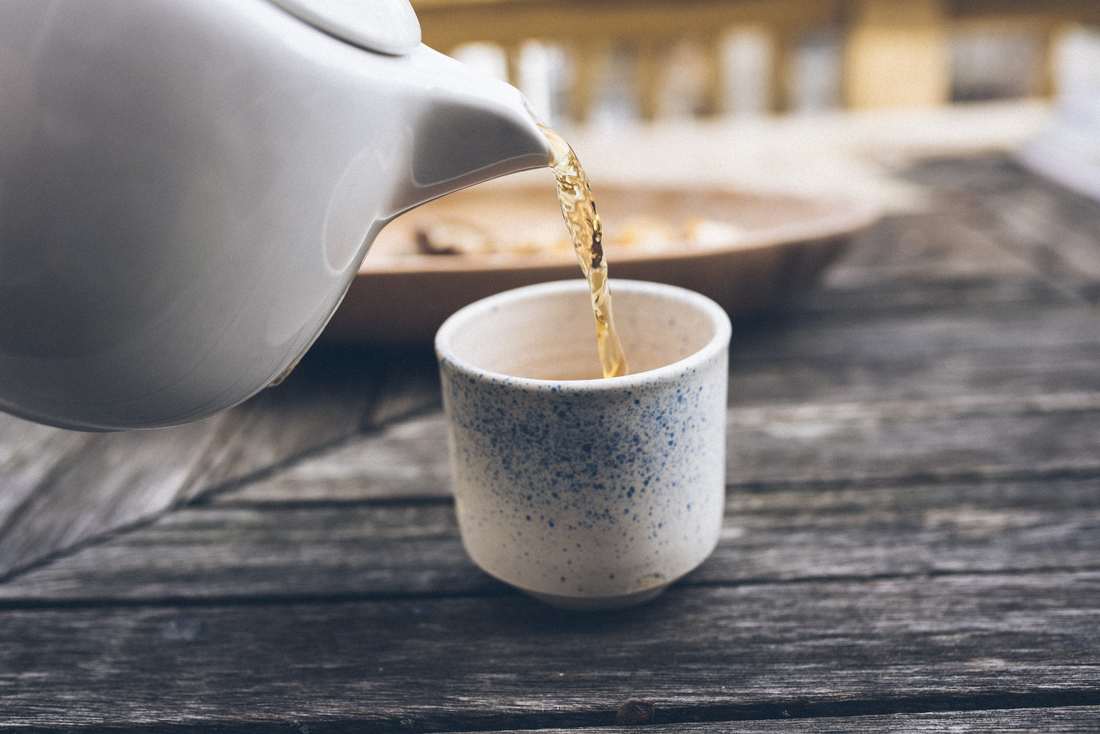

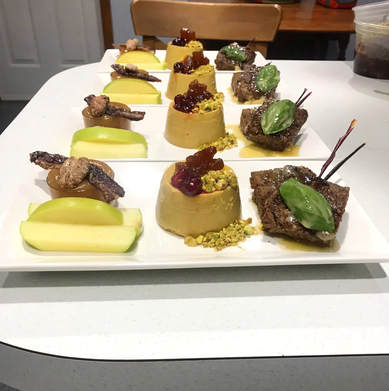
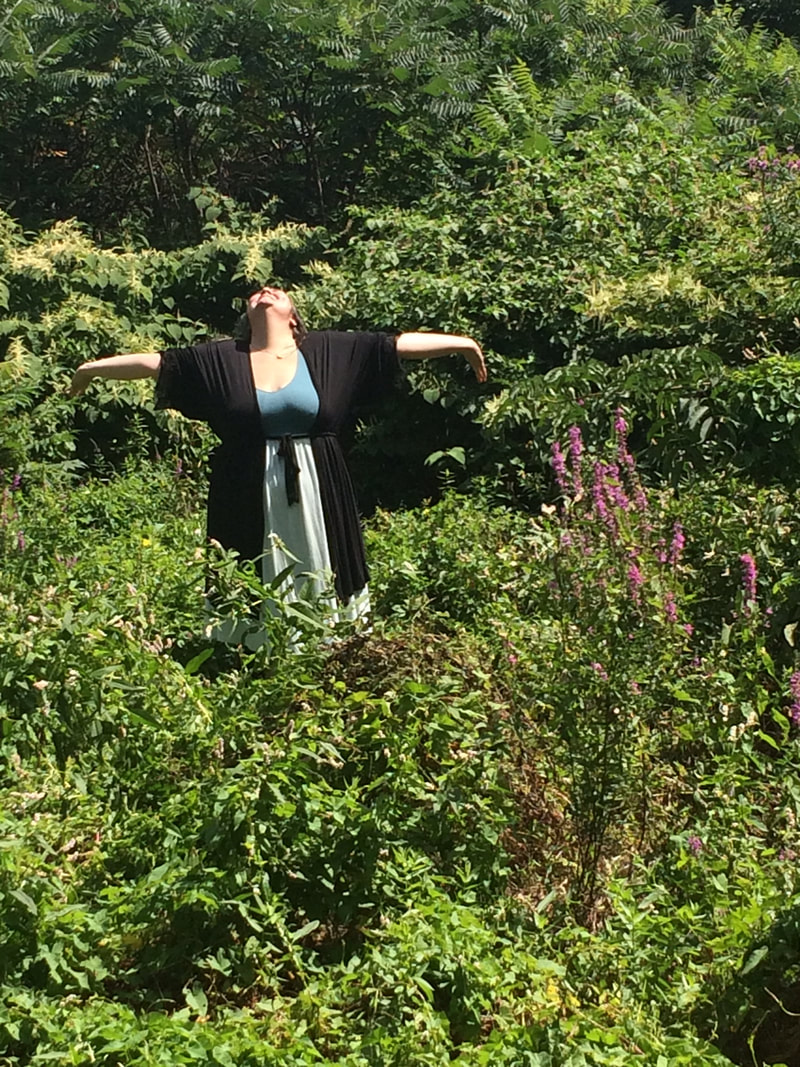
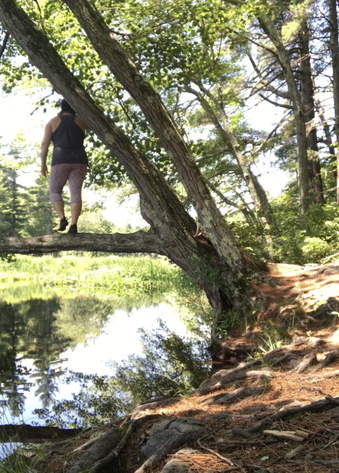
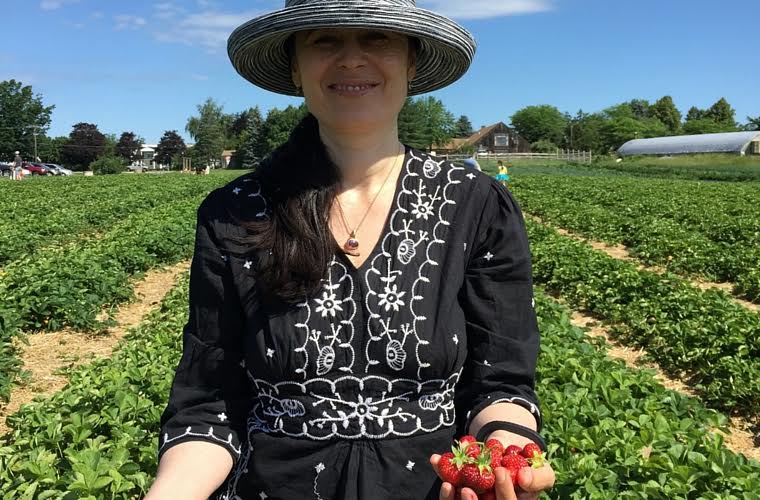
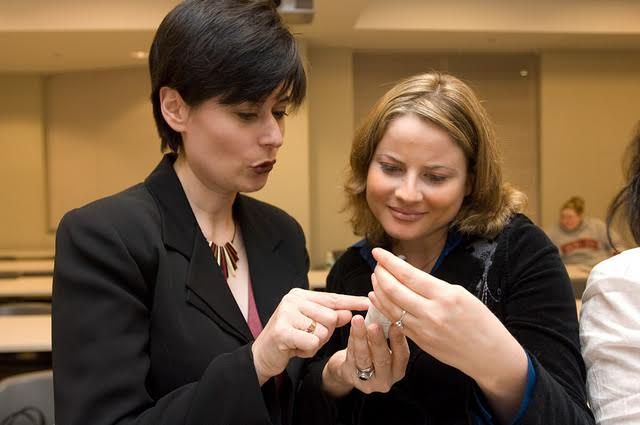
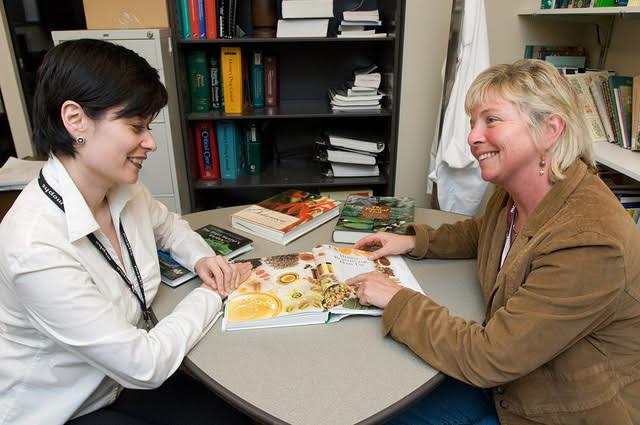
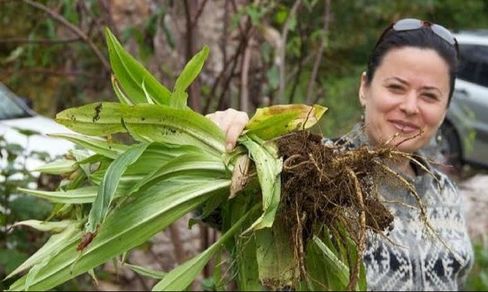
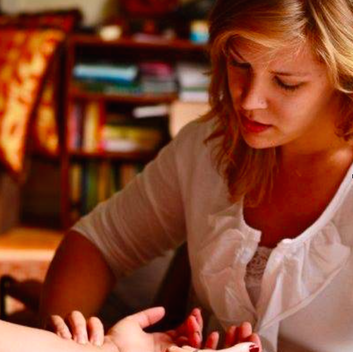
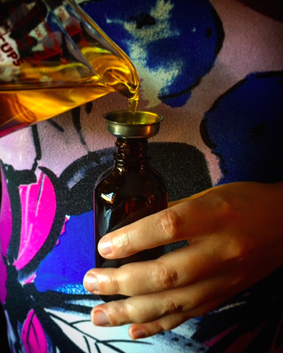
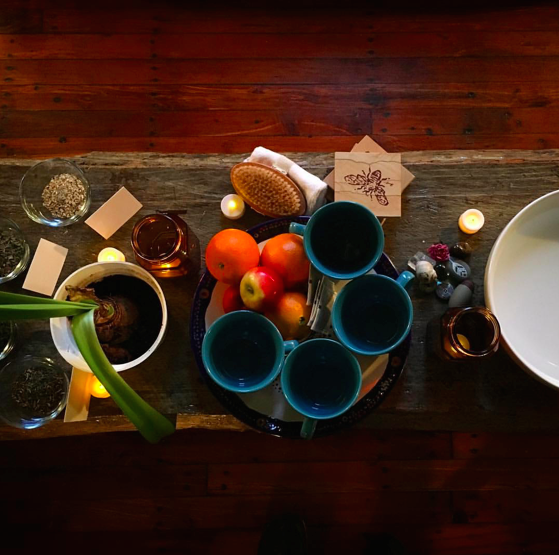
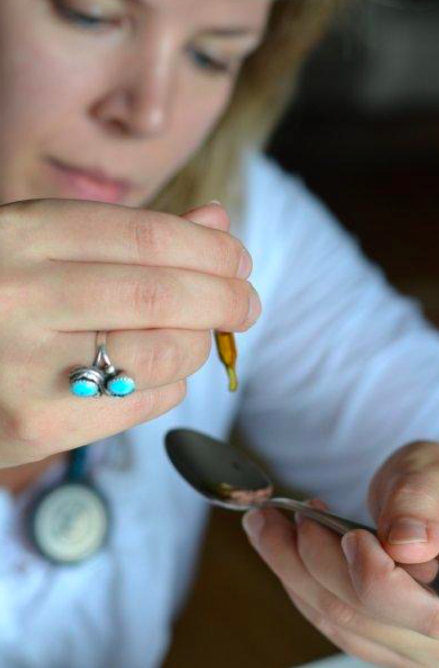
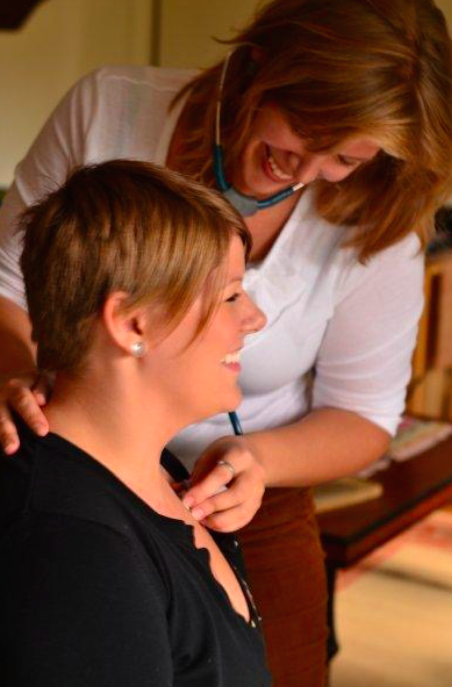
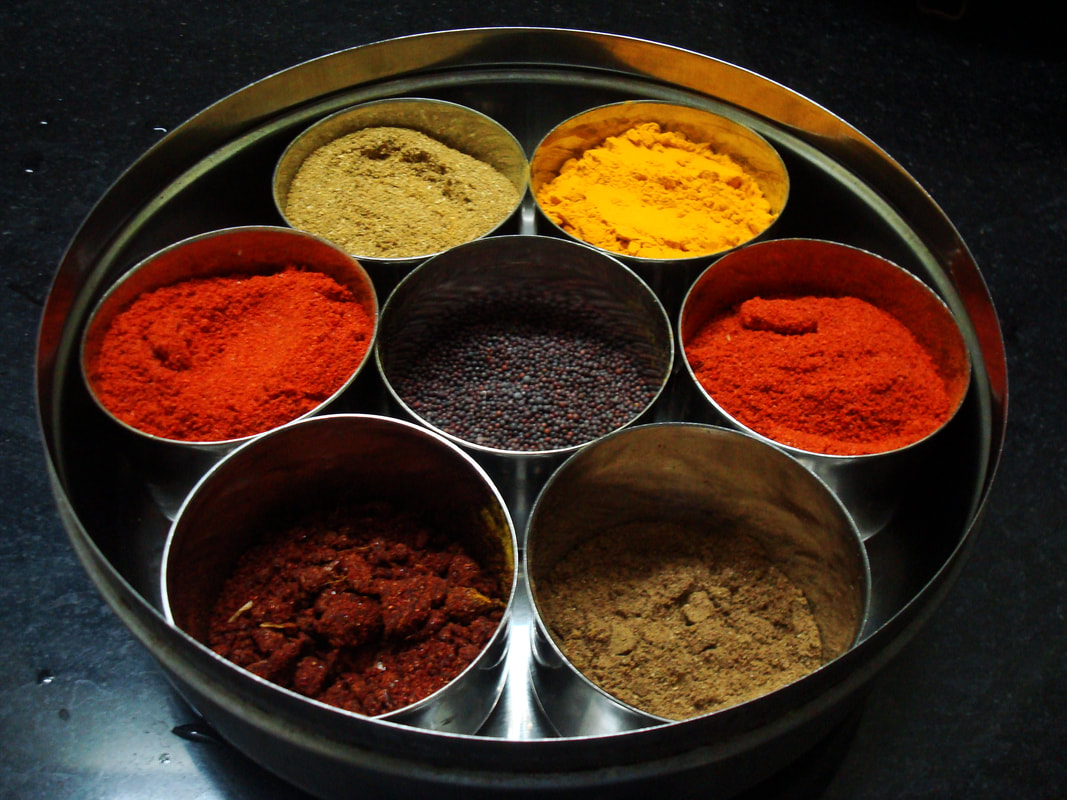

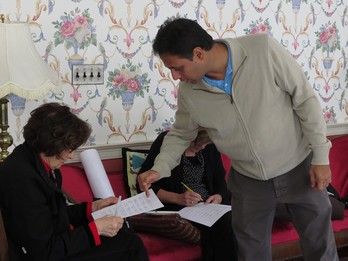

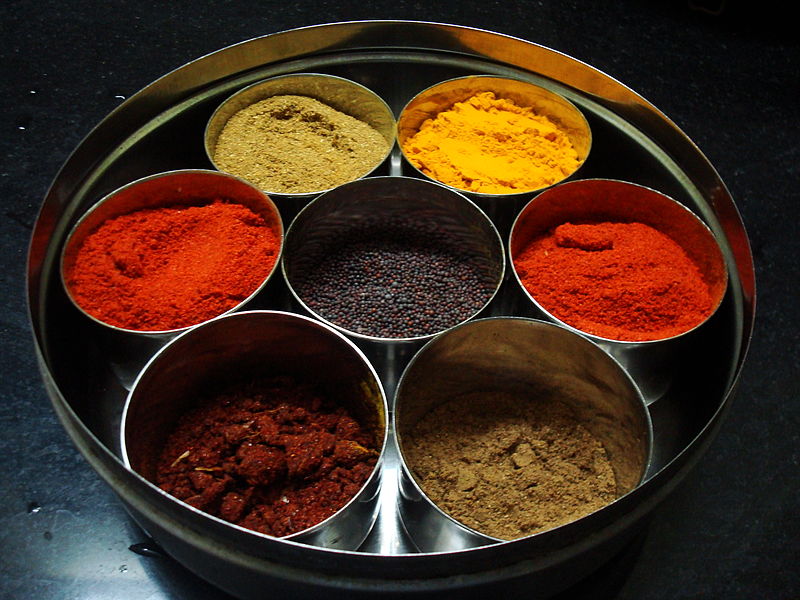
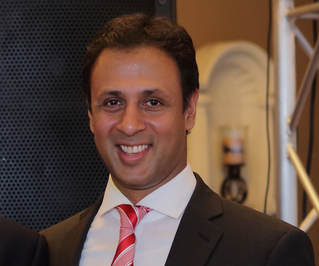
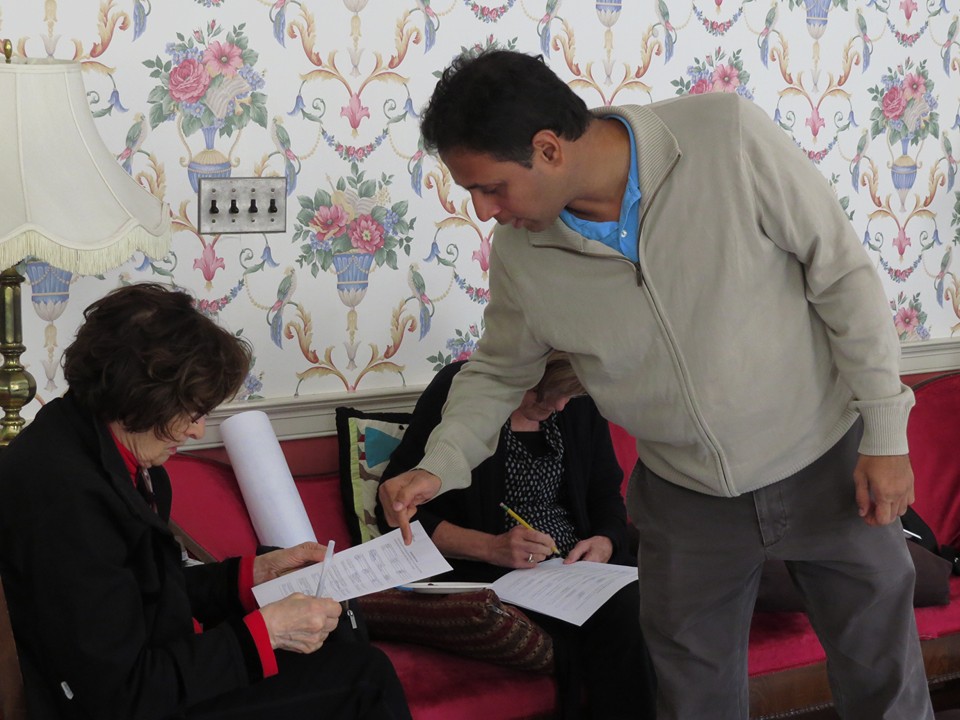
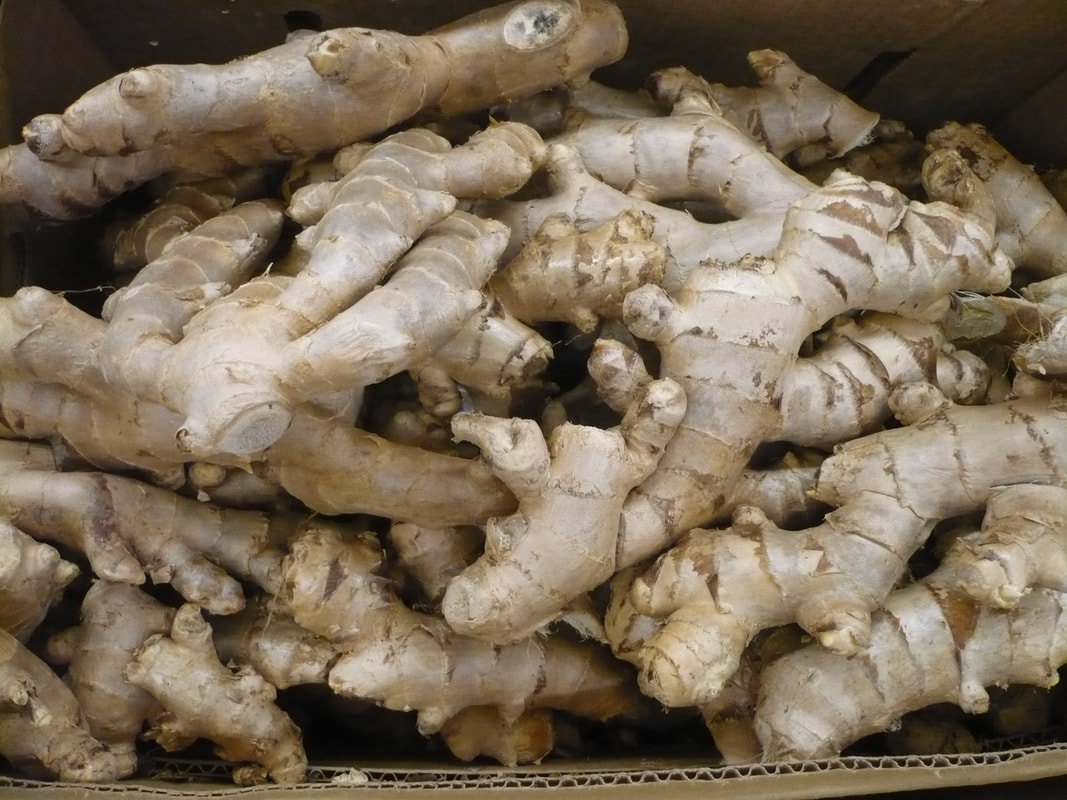
 RSS Feed
RSS Feed